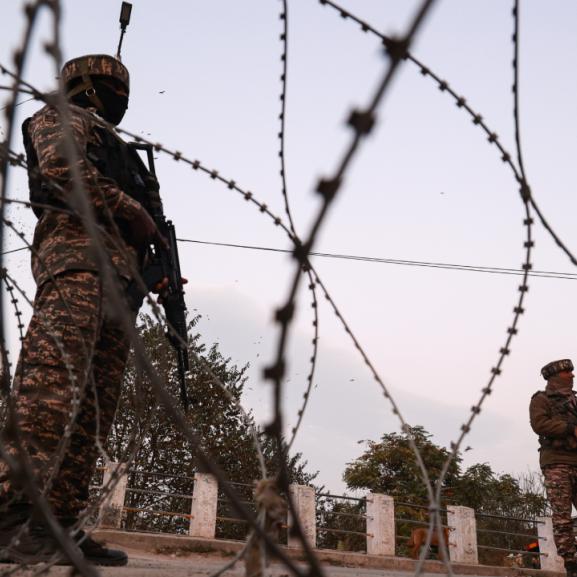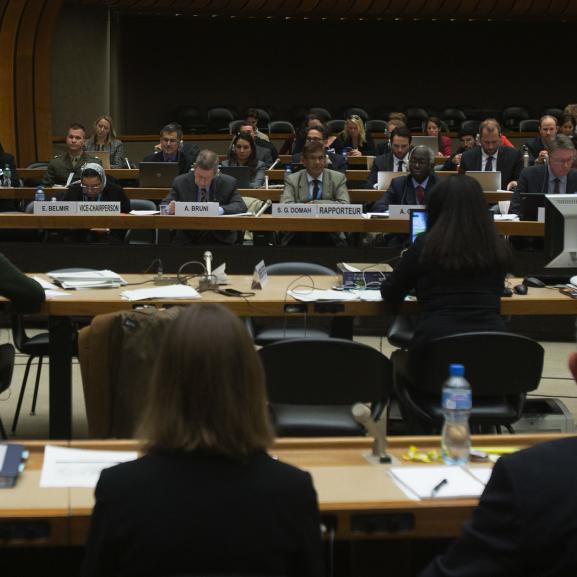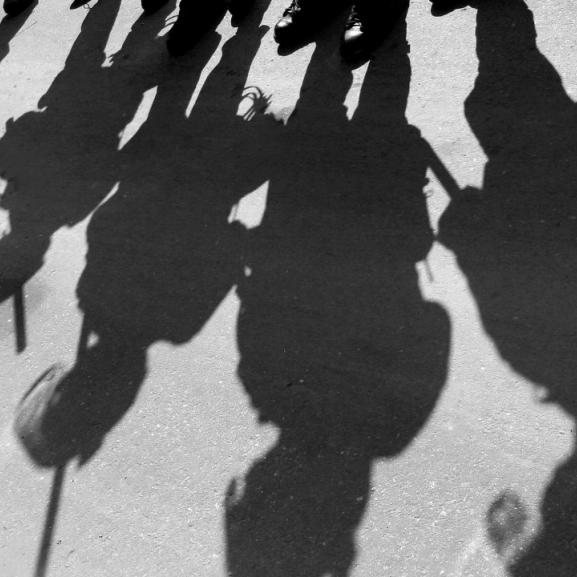USA in hot seat infront of UN’s Committee Against Torture
This Wednesday and Thursday, as the world waits on the publication of the CIA torture report, the U.N. Committee Against Torture in Geneva is tasked with reviewing reports submitted by the United States on its implementation of the U.N. Convention Against Torture. This is the view from our CEO Susan Munroe.
The U.S. submission includes President Barack Obama's comments from 2011 that:
"As a nation that played a leading role in the effort to bring this treaty into force, the United States will remain a leader in the effort to end torture around the world and to address the needs of torture victims."
Ending torture is a vision that Freedom from Torture shares with the President, as many do around the world.
However, the continued failure to publish the Senate Intelligence Committee's report in full suggests an ongoing lack of will by the U.S. to be accountable for the practice of "enhanced interrogation techniques" such as water-boarding and enforced disappearances by U.S agencies during the "War on Terror".
And unless the U.S. can provide such answers, including to the Committee against Torture, it is difficult to see how the U.S can fulfil its aspirations to a leadership role to end torture.
This is because above all, the U.N. Convention is founded on the premise of international accountability – that where States fall short of the treaty they will be accountable to the Committee, both so as to provide a measure of remedy and justice for those who are torture survivors, and also so that all States learn lessons about the systems changes needed to prevent torture in the future.
The Bush administration sought counsel as to whether water-boarding and other enhanced interrogation techniques were legal and the C.I.A have continued to refute the illegality of their actions.
The Bush administration sought counsel as to whether water-boarding and other enhanced interrogation techniques were legal and the C.I.A have continued to refute the illegality of their actions.
Let us remember that water-boarding is a form of partial-asphyxiation, where the victim is restrained while the perpetrators pour water over a cloth covering the mouth and nose, causing them to experience the horrifying sensation of drowning alongside such as enduring ill harms as lung and brain damage and the injuries caused by restraint.
Our doctors can attest from years of clinical practice, seeing survivors who have been subjected to 'water-boarding' that this is indeed torture, as prohibited by the U.N Convention. It is a point on which the UN Special Rapporteur is clear.
Every day we work psychotherapeutically with torture survivors, trying to help them overcome the severe trauma that is the legacy of torture. It is a long and exhausting battle. The psychological scars impact on their day-to-day functioning often limiting their family life, their ability to relate to others, their sleep patterns and appetite.
For some survivors of water-boarding, the simple act of pulling a jumper on over their head can trigger a panic attack. Others are still unable to submerge their head in a swimming pool or bath without experiencing flashbacks. This sense of panic can stay with individuals for a lifetime.
So President Obama's recent admission that torture was practised by CIA operatives in the wake of the 9/11 terror attacks was candid, compared to the previous administration. More worrying though, was the fact that it was immediately followed by a call for the public "not to feel too sanctimonious in retrospect".
For some survivors of water-boarding, the simple act of pulling a jumper on over their head can trigger a panic attack. Others are still unable to submerge their head in a swimming pool or bath without experiencing flashbacks. This sense of panic can stay with individuals for a lifetime.
And in spite of serious allegations of human rights violations, breaches of international law and deceit at the highest level, the U.S has not prosecuted anyone for torturing detainees.
The U.S. is at a crossroads in its stated aim of leading the global fight against torture. It ratified the Convention Against Torture 20 years ago and it should be the leader.
However it cannot keep pleading exceptionalism in the face of the War on Terror The ban on torture is absolute and, like any other international law, must be upheld without exception; its strength lies in the consistency with which it is applied. There is no get-out clause.
Like all States who have ratified the Convention, the U.S must be prepared to give an account of itself and it should hold anyone it finds in violation of the Convention to account regardless of the circumstances in which the torture was practised. We need the full and prompt publication of the Senate report, we need to see prosecutions in the U.S and we need a full account from the U.S. at the U.N Committee Against Torture.
There is nothing sanctimonious about demanding accountability for past abuses: if you sign up to the premise of the Convention against torture, you are agreeing it is the only way to ensure history does not repeat itself.






